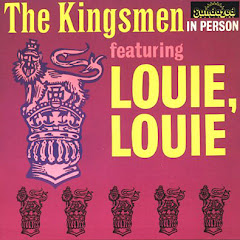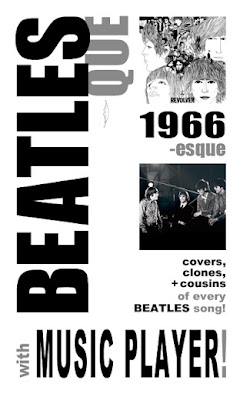Fringe fools are dismissing THE LAST JEDI for the same wrong reasons that THE EMPIRE STRIKES BACK was dismissed before.
But they are mistaken, because both are actually the best.
Here's why:
• Appreciating EMPIRE
• Appreciating LAST JEDI
• Appreciating the new STAR WARS trilogy
with no direct spoilers.)
I've been a STAR WARS fan since before the first film even premiered.*
- *(The novelization, comics, and SF mag coverage came out months early.)
Having come through all forms of the entire experience in real time, I offer some perspectives that might be helpful.
look as good you will not."
See also:
> How STAR WARS Is Changing Everything!
A Reference Guide
- Episode I: THE PHANTOM MENACE
- Episode II: ATTACK OF THE CLONES
- Episode III: REVENGE OF THE SITH
- Episode IV: A NEW HOPE
- Episode V: THE EMPIRE STRIKES BACK
- Episode VI: RETURN OF THE JEDI
- Episode VII: THE FORCE AWAKENS
- Episode VIII: THE LAST JEDI
- Episode IX: --------------------
I
A p p r e c i a t i n gE M P I R E :
here, between you, me, the tree, the rock, everywhere, yes."
STAR WARS (1977) was a feel-good fable loved by everyone so much that it became the biggest film of all time. The general expectation was that creator George Lucas would take the easy path and do a retread with STAR WARS 2.
Instead, THE EMPIRE STRIKES BACK (1980) did the opposite in every way, challenging the material and the audience while it expanded and deepened its potential. It was edgy, complex, upending, and outright traumatic.
Rather than a secondary adventure, Lucas had repositioned it as the second chapter of a second trilogy: the new plan was to make three trilogies across nine movies. Each trilogy would be structured like a traditional three-act play:
- the first act introduces the characters and the setting, open with possibilities
- the second act advances the breadth and depth leading to a dramatic peak needing resolution
- the third act synthesizes the basics of the first with the complexity of the second to culminate in a higher fruition
And the second trilogy ultimately did exactly that: STAR WARS canvased the cast and settings; EMPIRE navigated edgy drama; and RETURN OF THE JEDI (1983) combined the structure of the first film with the edge of the second into a more sophisticated, intense culmination.
So, true to first and second acts, STAR WARS was bright and clear where EMPIRE was noir, murky, and claustrophobic. STAR WARS was a childrens crusade against evil that got lucky while EMPIRE earned its title as the realistically harsh blowback from taking on the repressor. It tormented and separated its heroes, tested their convictions, and climaxed with one of the most shocking reveals in the history of cinema.
[Note how the second act of the Lord Of The Rings trilogy, THE TWO TOWERS, also expands the range, deepens the drama, darkens the tone, separates the characters, and sorely tests all of them.]
Sharp critics and stunned fans hailed the film for its bold audacity to throw away formula and turn everything inside out for a deeper, richer result.
There were also those who didn't dig the film for well-considered reasons that they could defend. That's fine; we each make our tastes and choices, live and let live.
But some of the grumblers at the time were more reflexive than reflective. Some thought the second film was cold, brutal, fragmented, dispiriting, or incomplete. Some complained that it betrayed their upbeat hopes, conventional expectations, or some entitlement to a snappy wrap-up. There were gripes about retrofitting the backstory, bewildering Force manifestations, the dark tone and introspection, and the unexpected turn in the romance triangle. The rudest said new director Irvin Kershner had soured Lucas' vision. The dumbest hated “the muppet”, the lowest hated “the black guy”. Unaware of the three-act structure, some felt the cliffhanger ending and three year wait for a resolution was the worst betrayal.
And time left them behind. In retrospect, EMPIRE is often considered the best of the films for all these very qualities.
Context is everything, and -like kids complaining in the middle of a journey- these doubters hadn't exercised the awareness, maturity, or patience needed for a complete perspective.
"Briefly formulated, the universal doctrine teaches that all the visible structures of the world -all things and beings- are the effects of a ubiquitous power out of which they rise, which supports and fills them during the period of their manifestation, and back into which they must ultimately dissolve."
-Joseph Campbell, "The Hero With A Thousand Faces" (1949)
II
A p p r e c i a t i n gL A S T
J E D I :
Inside me, that same force."
THE FORCE AWAKENS (2015) kicked off the new third trilogy as a slyly sophisticated rethink of the initial 1977 film, recapturing the original magic in fresh new ways with spectacular success.
The general expectation, with no sense of irony, seemed to be that the second act would be a walk-through of EMPIRE. But knowing that, THE LAST JEDI (2017) did the precise right approach by instead inverting the elements and themes of EMPIRE inside out to open up new breadth and depth that no one expected. It was newly edgy, complex, upending, and outright traumatic, while staying true to the second act's spirit by changing the possibilities of what that second act could advance.
The creation of the STAR WARS films has now become a generational hand-off. There was a long period when it was in doubt that there would ever be a third trilogy. To our benefit, the new films are being created by uberfans-turned-pros who are blessing us in threefold actions: they are resetting the possibilities, challenging the expectations of the past and the future, and ultimately defining the resolution of it all.
So, true to first and second acts, FORCE AWAKENS was bouyant and invigorated where LAST JEDI became sober, conflicted, and moody. FORCE was a tumble of chutzpah and charm while LAST JEDI sewed doubt within each person's hopes and plans. It separated its cast while bonding them in unexpected ways, tested their actions while evolving their resolves, and climaxed with one of the most startling and enigmatic showdowns in the series' history.
Alert critics and aware fans roundly praised the film for turning all of STAR WARS' conventions inside out to open up profounder, newly-rewarding results.
Not everyone dug it, and had their reasons worked out. Fine, live let live.
But, inevitably, a new round of reflexive grumblers also struck back; those who never knew history are condemned to repeat hysteria. So some felt it didn't fit their perfect expectations, while others griped about retconning the canon, bewildering Force manifestations, the dark tone and introspection, or turns in the romance matches. The rudest said new writer/director Rian Johnson had soured J.J. Abrams' promising vision. The dumbest hated “(insert cute thing)”, the lowest hated “the chick star” or social commentary or cast diversity [reality]. Unaware of the three-act structure, some felt the story set everyone up for a fail without a tidy comforting pinnacle.
But let's be clear at this point: anyone has a right to point out why something doesn't work for them, and hearing multiple views is vital to improve everyone's perspectives. So if broccoli or hula hoops or LAST JEDI aren't your thing for your own reasons, that's of course fine and deserves respect. The operative word here, all around, being respect. The distinction juncture here is that there's a difference between a dissenting view with considered reflection and a reflexive view rooted in hostility or ignorance. The former isn't a problem, the latter is.
Dissenting opinions? Sure. Hate campaigns? NO.
Dissent is good and necessary, but 'to criticize' doesn't simply mean to tear things apart. There are two paths you can go by:
- a Constructive Critique respects someone's intentions while offering them some possible options to explore.
- a Destructive Critique dismisses with disrespect while offering no solutions.
Just like THE EMPIRE STRIKES BACK before, THE LAST JEDI earned its share of dissenting reactions. In EMPIRE's day, you could write a differing opinion to your newspaper or magazines or friends. That is the normal process of fandom working out its individual takes.
This is different from outsider sabotage. Now, in the internet era, it is too common and easy to rig Fake Narratives of negativity against positive movements simply to undermine quality and progress. The evidence is clear now that THE LAST JEDI was targeted by a deliberate hate campaign by right-wing zealots and sexist bigots meant to undermine its credibility and success. [see also, FakePrez]
Research Finds 50% of Last Jedi Backlash Was Political Trolling, and >, and >
These Darth Vandals attempted to overthrow reason with hostility. But the Kylos of the world are wrong; we don't need any more Sith Mind Tricks meant to divide and conquer us. We should always be mindful, and sort the dark from the light, the helpful from the hurtful. It is only the voices of hate, aggression, or disrespect that have no place in the STAR WARS fandom story.>
And history proves that any fringe haters will lose. Seen in perspective, THE LAST JEDI is a superior film because of its disruptive qualities: it exceeds expectations at every turn, converts every familiar element into an untrod breakthrough, and challenges both the series and the viewer to grow with its advances.
Context, perspective, awareness.
"...if the personality is able to absorb and integrate the new forces, there will be experienced an almost super-human degree of self-consciousness and masterful control."
-Joseph Campbell, "The Hero With A Thousand Faces" (1949)
III
A p p r e c i a t i n gthe new STAR WARS trilogy:
it binds the galaxy together."
Too often it's been said that, "THE FORCE AWAKENS is just a remake of the first film."
This is actually untrue, and shows a consummate misunderstanding of the actual cyclical structures of STAR WARS films.
Here are some different ways of seeing.:
••• Each trilogy is constructed like a three-act play.
The first film/act of each introduces the characters, their goals, and the backdrop. The second film/act complicates their lives with adversity and hard choices that need to be resolved. The third film/act combines the basics of the first with the depth of the second for a climactic crescendo.
Joseph Campbell described this universally common myth cycle as "Departure, Initiation, Return."
Another way to see this is thesis/antithesis/synthesis.
••• But each trilogy has also now become an act in a three-act arc.
It will ultimately be a trilogy of trilogies, with each one equalling a first, a second, and a third act.
- Intro: The first trilogy/act introduced the central basics of the family and an initially positive universe, and where that led.
- Conflict: The second trilogy/act deals with the aftermath transition for the heirs within a compromised universe, and their crusade to change it.
- Resolution: The new third trilogy/act follows the struggle of a third generation to reconcile the paths of the two pasts and transcend them in a conclusive fruition.
to the future, to the horizon."
••• Each has the same structure, but changes the results.
The retroactive first trilogy deliberately mirrored the story structure and arc of the second, but changed the results to contrast how one person went wrong while another went right. The third trilogy now works within these familiar goalposts while deliberately challenging, expanding, and changing every aspect between. Just as the same ingredients become unique meals in the hands of different chefs, the three arcs set up the same frameworks from which each veers into unique terreigns.
In this way, the STAR WARS films have gone unrecognized as being spiritual cousins to other such films, where a repeated sitiuation takes different outcomes: IT'S A WONDERFUL LIFE, GROUNDHOG DAY, RUN LOLA RUN, EDGE OF TOMORROW, etc.
The STAR WARS saga uses lineage as the narrative line of descent (or ascent) for this recombinant cycle: Parent/child/grandchild. Same blood, different lives.
••• It's about the cycle of life, through lineage and maturity.
Mentors, students. Guardians, youths. Adepts, novices. Wisdom, learning.
The thematic throughline of Lucas' career is passing knowledge through lineage, and how the maturation cycle is repeated in the process. It's inherent in AMERICAN GRAFFITI, STAR WARS, and the RAIDERS films, but most especially in his essential and underrated INDIANA JONES CHRONICLES TV series.>
The films have become generational along with the audience, and continually inform each other.
••• Each trilogy follows a female and a male.
But STAR WARS isn't simply a boys-only tale about a particular lineage. It's a story for everyone about offset yin/yang spirits trying to find balance and communion, centered around a unique heritage.
- Padme and Anakin
- Leia and Luke
- Rey and Kylo
••• Visual and thematic rhymes are constant for a reason.
If something seems familiar, it is a deliberate marker for culmination, contrast, or abrupt deviation.
- "I’ve seen a lot of strange stuff, but I’ve never seen anything to make me believe there’s one all-powerful Force controlling everything. There’s no mystical energy field controls my destiny!"
-STAR WARS (1977)
- "Thought it was a bunch of mumbo-jumbo. A magical power holding together good and evil, the dark side and the light. Crazy thing is... it's true. The Force. The Jedi... All of it... It's all true."
-THE FORCE AWAKENS (2015)
At its best, STAR WARS uses these internal rhymes as pivot points or saga bookends.
(At its weakest, in any media, it recycles its past highlights too heavily without innovation.)
••• For every familiar element, there are many more new elements.
or, "Why THE FORCE AWAKENS is not just a remake of STAR WARS"
• The STAR WARS trilogies are a premise retelling itself differently each time.
The second film trilogy began with STAR WARS (later retitled "A New Hope") and ended with RETURN OF THE JEDI. Because of the logic of the third act, the third film is structurally the same as the first -from Tattooine to the Death Star- but is far richer and more complicated because of the emotional maturity and epic scope advanced in between by the second act, EMPIRE.
Thesis/antithesis/synthesis. Dreams/challenges/maturity.
But at the time, grumblers dismissed RETURN as a remake of the first film, without recognizing either the logical structure of a three-act trilogy or that the film was exponentially more progressive than the first in new ways. For every familiar thing, there were several advanced things.
• The STAR WARS trilogies are a premise retelling itself contrarily each time.
Dramatically, the prequel/first trilogy is a distorted mirror of the second: a dark path versus the light. As an alternate fork off the same path, its structure echoes the other while changing the outcomes along the way.
But because the structure of the first act THE PHANTOM MENACE (1999) parallels that of STAR WARS: A New Hope, many at the time said it was just an expansive remake of the original film. This failed to recognize that PHANTOM was doing internal rhymes on purpose, so that the second act ATTACK OF THE CLONES (2002) could lead off into different outcomes. Familiar, then renewal.
Familiar also leads to reversals, which is why the title of the third act, REVENGE OF THE SITH (2005), is the exact opposite of the title of the second trilogy's third act, RETURN OF THE JEDI. The counter rhyme was like the other shoe dropping, a poignant binary summing up each trilogy's differing outcomes.
• The STAR WARS trilogies are a premise retelling itself more sophisticatedly each time.
Being the first act of a third trilogy, THE FORCE AWAKENS naturally has the same basic structure as the previous first acts, PHANTOM and A NEW HOPE. But just as they differed in actions and outcomes, so too does FORCE. Between the familiar goalposts of Jakku (Tatooine) and Starkiller Base (Death Star), something new happens at every turn: every detail now challenges, advances, and escalates what has happened before into what has never happened.
The original/second trilogy began as a radiant allegory of light versus dark and became more complicated, more mature as it went. From the kickstart, FORCE immediately updates this to a richer spectrum and more realistic approach, exchanging shooter games for bloody warfare, humanizing stormtroopers, complicating the villain, amplifying the character depth, and diversifying the repressors as well as the rebels.
While the details have freshly expanded, the plot arc has expressly accelerated. FORCE actually has crucial elements of both A NEW HOPE and EMPIRE, hastening and intensifying the war between the players of light and dark. Because of this surge, THE LAST JEDI likewise hyperspeeds and inverts elements from both EMPIRE and RETURN, leading the endgame for the final trilogy's third act into somewhere we've never reached before.
THE PHANTOM MENACE and A NEW HOPE and THE FORCE AWAKENS are the same set-up... but they are not the same story. They are counter-verses in a longer song. Same rhythm, different statements.
[This is all conterpointed in composer John Williams' use of recurring character themes, motifs, and anthems in all the films' scores.]
For all the hasty comparisons to the original movie, the new films THE FORCE AWAKENS, THE LAST JEDI, and the standalone prequel ROGUE ONE (2016), more directly epitomize the radical spirit of THE EMPIRE STRIKES BACK, by embracing complexity, broadening diversity, challenging assumptions, complicating motives, subverting doctrine, and amplifying mature edge. The new movies have become far richer and more complicated because of the emotional maturity and epic scope advanced by the previous trilogies... and also by the passage of real time.
The audience and the creators have matured, and the movies have become more sophisticated to match. We loved the films in our youth/ we've grown with our own challenges over time/ the movies reflect that summation.
Thesis/antithesis/synthesis.
Dreams/challenges/maturity.
that will light the fire
that'll burn the First Order down."
Fringe fools are dismissing THE LAST JEDI for the same wrong reasons they dismissed THE EMPIRE STRIKES BACK before.
But they are mistaken, because both exemplify the best of STAR WARS: brilliant craft, brave innovation, realistic complexity, and the triumph of compassion.
Let's join together with awareness, maturity, and patience for a complete perspective.
© Tym Stevens
See also:
How STAR WARS Is Changing Everything!
2001: A SPACE ODYSSEY - Its Transcendent Influence on all Pop Culture!, with Music Player
-STARSTRUCK Strikes Back!
-STARSTRUCK: The Roots and Branches of Elaine Lee & Michael Kaluta's space opera
- THE CANON 1: 50 Books That Created Modern Culture, with Music Player
- THE CANON 2: 50 More Books That Created Modern Pop Culture, with Music Player
- THE CANON 3: 50 Recent Books That Created Modern Culture, with Music Player
-The Real History of Rock and Soul!: A Music Player Checklist





















































































































































1 comment:
thank you for sharing
obat kuat jakarta
obat kuat pria
toko obat kuat asli
viagra jakarta
viagra asli
viagra usa
Post a Comment